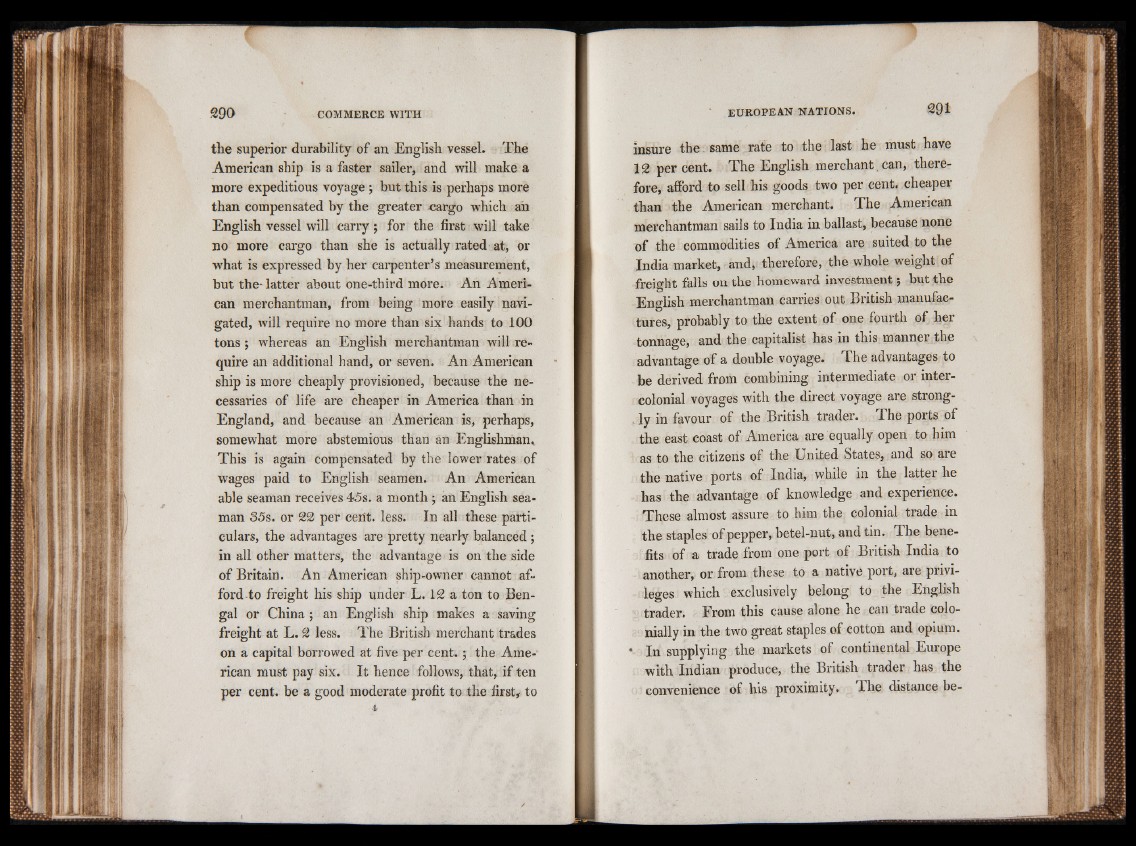
the superior durability of an English vessel. The
American ship is a faster sailer, and will make a
more expeditious voyage ; but this is perhaps more
than compensated by the greater -cargo which ah
English vessel will carry j for the first will take
no more cargo than she is actually rated at, or
what is expressed by her carpenter’s measurement,
but the-latter about one-third more. An American
merchantman, from being more easily navigated,
will require no more than six hands to 100
tons ; whereas an English merchantman will require
an additional hand, or seven. An American
ship is more cheaply provisioned, because the necessaries
of life are cheaper in America than in
England, and because an American is, perhaps,
somewhat more abstemious than an Englishman.
This is again compensated by the lower rates of
wages paid to English seamen. An American
able seaman receives 45s. a month; an English seaman
35s. or 22 per cent. less. In all these particulars,
the advantages are pretty nearly balanced;
in all other matters, the advantage is on the side
of Britain. An American ship-owner cannot afford
to freight his ship under L. 12 a ton to Bengal
or China ; an English ship makes a saving
freight at L. 2 less. The British merchant trades
on a capital borrowed at five per cent.; the American
must pay six. It hence follows, that, if ten
per cent, be a good moderate profit to the first, to ■i .
insure the. same rate to the last he must have
12 per cent. The English merchant. can, therefore,
afford to sell his goods two per cent, cheaper
than the American merchant. The American
merchantman sails to India in ballast, because none
of the commodities of America are suited to the
India market, and, therefore, the whole weight of
freight falls on the homeward investment; but the
English merchantman carries out British manufactures,
probably to the extent of one fourth of her
tonnage, and the capitalist has in this manner the
advantage of a double voyage. The advantages to
be derived from combining intermediate or intercolonial
voyages with the direct voyage are strong-
, ly in favour of the British trader. The ports of
the east coast of America are equally open to him
as to the citizens of the United States, and so are
the native ports of India, while in the latter he
has the advantage of knowledge and experience.
These almost assure to him the colonial trade in
the staples of pepper, betel-nut, and tin. The benefits
of a trade from one port of British India to
another, or from these to a native port, aie privileges
which exclusively belong to the English
trader. From this cause alone he can trade colo-
nially in the two great staples of cotton and opium.
* In supplying the markets of continental Europe
with Indian produce, the British trader has the
convenience of his proximity. The distance be